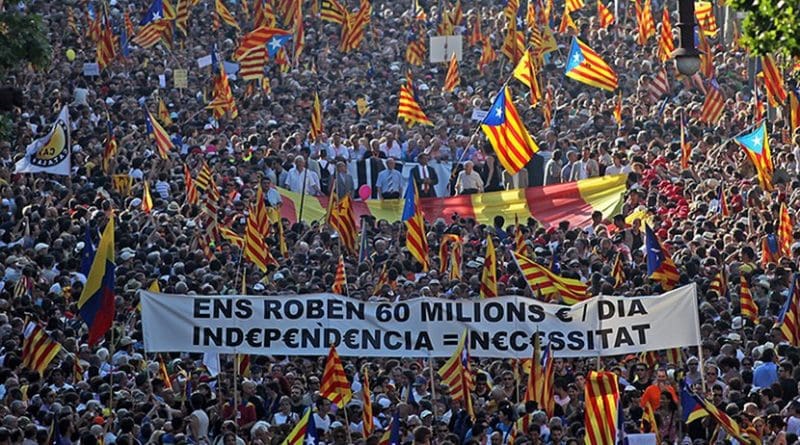How Catalan Voters Gave Spain Another Headache – OpEd
By Arab News
By Cornelia Meyer*
The voters of the Spanish region of Catalonia went to the polls last week to elect a new regional parliament. The vote took place against the backdrop of high drama that had unfolded since the regional president of Catalonia, Carles Puigdemont, held an independence vote on October 1.
That referendum contravened Article 155 of the Spanish constitution, which forbids actions directed against the unity of the Spanish state. Spanish Prime Minister Mariano Rajoy acted swiftly and sent the police and the civil guard in to close down voting stations, which aggravated the situation further.
Puigdemont then poured oil on the fire by declaring independence, which in turn led the central government to dismiss the Catalan executive branch and take interim control. Finally, Rajoy called tye regional election on December 21. In the meantime, several Catalan leaders were either arrested for constitutional disobedience or joined Puigdemont in exile.
The people of Catalonia came out to vote in droves; participation was 82 percent. Alas, the result was inconclusive, the conflict lingers on and the population of Catalonia remains split down the middle. Puigdemont and Rajoy still talk at cross purposes, with the former indicating willingness to meet outside Spain and the latter refusing to engage.
Calling the election has backfired on Rajoy. Pro-government parties won the popular vote narrowly with 52 percent, but his own Partido Popular was badly beaten and won only three seats in the regional assembly. The biggest faction in parliament is the Citizens’ Party (Ciudadanos) of Ines Arrimadas, who want to remain in Spain.
This is the first time loyalists have emerged as the largest party in Catalonia. They are only narrowly ahead of Puigdemont’s party with their 37 seats. The idiosyncrasies of the voting system gave the three pro-independence parties a narrow majority in the assembly (70 out of 135 seats). Technically they could form a government, but they are ideologically far apart. Moreover, seven of their elected members are either in jail or in exile, and risk arrest if they return. This brings their total down to 63 seats, which narrowly misses the required majority.
Once more Europe has produced an inconclusive election result and coalition negotiations that may drag on for months and result in new elections (Germany springs to mind). Once more a national leader has misjudged the situation by calling an election and having it backfire (UK Prime Minister Theresa May fell into that trap this year).
Once more populists have done well, although this time they are not of the ultra right-wing persuasion, but separatists, like the Scots.
For Spain, this is a difficult situation, because Puigdemont and Rajoy need to find a way to deescalate the situation for the good of both the country and of Catalonia. The region’s economy is feeling the effects of political instability. Tourism is down. About 3,000 companies moved their headquarters from Catalonia to other parts of Spain, a substantial number that represents a little over 30 percent of Catalonia’s economy. On Friday, after the election, Madrid’s IBEX 35 benchmark stock market index fell by 1 percent and the two big Catalan banks, Caixa General and Banco Sabadell, fell by 3 percent, in spite of having moved their headquarters in October.
The Catalan dilemma also puts the EU in a tight spot. The EU and the European Court of Justice had declared the independence vote illegal and therefore did not accept the subsequent declaration of independence. If one looks at the situation from the vantage point of Brussels, it is clear that there are too many centrifugal forces at work. The Scots, the Basques, Corsica and many others might want to follow suit and declare independence. The EU has little interest in a plethora of small new states built on economies that are not independently viable. Greece, Portugal, Spain and Italy have proved to be enough of an economic headache over the past decade. It is true that Catalonia’s population accounts for 16 percent of Spain’s, and that its economy represents 19 percent of Spain’s GDP and 25.6 percent of the country’s exports.
However, the situation would look different if the region had to service its fair share of Spain’s national debt and lacked access to EU markets and preferential finance.
The EU also has to deal with Brexit and strong populist movements that endanger cohesion, the status quo and the very existence of the organisation. If Puigdemont and Rajoy therefore count on mediation from Brussels, they may be in for a long wait.
• Cornelia Meyer is a business consultant, macro-economist and energy expert. Twitter: @MeyerResources

